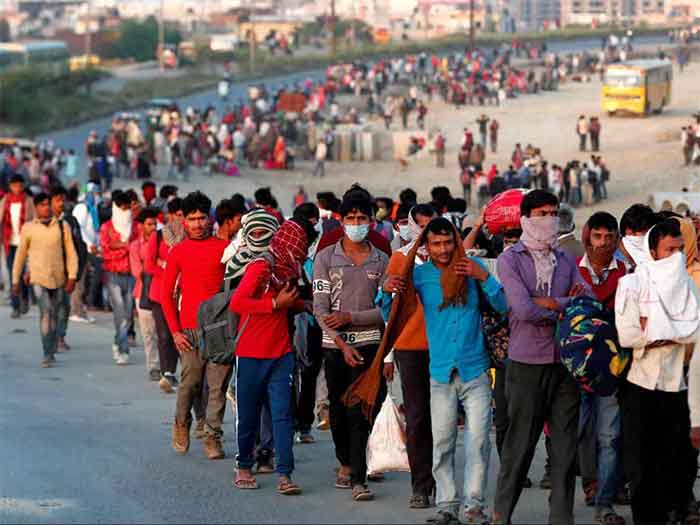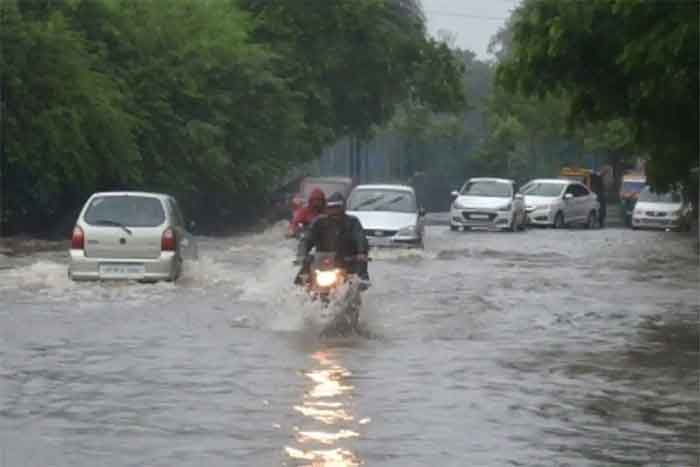
Since the beginning of COVID, most political parties have competed against each other in claiming how they provided relief material to those most affected by the pandemic. While the State governments and the central government announced various packages for the people political leaders were seen distributing food and medical kits among the people.
In West Bengal too, Covid relief work became a corner stone of the election campaigns. At the onset of COVID-19 pandemic, relief assistance from the government was much needed and the West Bengal government declared several packages for the people.
During the assembly elections last year, both Trinamul Congress and the Bharatiya Janata Party went on to blow the trumpet about the amount of relief work they have undertaken during the pandemic. Even during the recent Kolkata Municipal Corporation election too, many flexes, banners etc were spotted mentioning similar claims during this period.
Disasters have played a great role in making or breaking political careers, throughout history. A recent example is from Kerala, where many political analysts believe the incumbent CPM government’s response to the NIPAH virus outbreak and the great Kerala floods of 2018 helped to break the usual “left right left” cycle of Kerala assembly and helped Pinnarayi Vijayan secure office for a second consecutive time.
The way governments deal with disaster, especially the emergency response is very important, but if it stops there without any long-term goal, it puts the people in the same jeopardy if the situation repeats again.
 For example, when the lockdown began India in early 2020 the Indian government announced a number of welfare measures. As lockdown came into effect the sudden many were caught off guard, resulting in – among other things – in the long “death” marches of migrant workers. After three days of the beginning of the lockdown the finance minister Nirmala Sitharaman announced a Rs. 1.7 Lakh crore relief package to provide for those hardest hit. Under this package it was announced that the Government will provide 5Kg of wheat or rice and 1 kg of pulses free every month for the next three months. Additionally, under the Ujjwala scheme 800 million people were supposed to get free LPG gases. An additional Rs.500 each for three months was directly transferred to the Jan Dhan accounts.
For example, when the lockdown began India in early 2020 the Indian government announced a number of welfare measures. As lockdown came into effect the sudden many were caught off guard, resulting in – among other things – in the long “death” marches of migrant workers. After three days of the beginning of the lockdown the finance minister Nirmala Sitharaman announced a Rs. 1.7 Lakh crore relief package to provide for those hardest hit. Under this package it was announced that the Government will provide 5Kg of wheat or rice and 1 kg of pulses free every month for the next three months. Additionally, under the Ujjwala scheme 800 million people were supposed to get free LPG gases. An additional Rs.500 each for three months was directly transferred to the Jan Dhan accounts.
The package was great as a starter for an emergency response. However, it could have played an even more important role in preventing or dealing with future pandemics, if long-term planning had been equally in place.
This is because the biggest negative impact of a pandemic is through joblessness and income deficiency. According to Nobel laureate economist Amartya Sen, “Employment and income are basic concerns of the poor and taking special care for preserving them whenever they are threatened is an essential requirement of policy-making.” But, apart from the announcement of the package mentioned, the government had absolutely no interest in looking into legislative reforms to provide job and income security to the huge number of workers working in unorganized sector and the private sector.
In April and May of 2020, unemployment hit a record 23.52%. If any job security initiative had been in place this situation could be avoided. The Global Hunger Index similarly gives us another grim picture. In the first one year of the COVID crisis, India slipped 94 places and stood at 101 among 116 nations. However, the government of India, didn’t take this alarming drop in hunger ranking seriously and instead they went on to declare the methods as “unscientific and devoid of ground reality”.
But, the truth is that there have been no legislative reforms on the part of the government in respect to the pandemic. Since the lockdown began parliament has been in session at least five times. But, any legislation for job security during a national crisis for the unorganized sector was not discussed during this phase. While there is no nationwide registration or systematic collection of data, it is estimated that a staggering 94% of the total work force consists of unorganized sector workers.
Due to government indecision and absence of proper legislation to protect their rights, they were one of the worst affected during the entire pandemic. According to Asif Ali Sardar, a worker who returned from Kerala during the lockdown, “I had some property in my ancestral place. That is how I survived the summary termination of our jobs during the lockdown. Many were not lucky enough. They just survived by borrowing money from others and with the little help they got from the government”. That has been the case for many.
Most of the unorganized sector workers work on a seasonal basis. No proper register is maintained to ensure job security, provident fund payments or participation in pension pension schemes of any kind. In a crisis like the pandemic, they didn’t have any legal assurance about their jobs even when the lockdown ended. There is no permanent scheme for these people when they suffer from involuntary joblessness and they have to fend for themselves.
It is true that the government declared some packages to help distressed members of the public on an emergency basis, but this was more to help their own electoral coffers than a step towards any permanent solution. Without legislative reforms to safeguard unorganized sector workers, if a similar situation arises in future, their condition will remain the same.
We will see the same degree of desperation among the workers to feed their families even once a day. The issues of the unorganized workers are rarely taken up even by mainstream trade unions, who have failed to raise their demands and protect their interests.
In a welcome step, the Indian government recently announced the registration of workers through the e-Shram portal. This will help more than 22 crore workers to register themselves. One hopes this will be followed up with specific legislation to protect this vast section of working class during future crises, learning from the experience during the pandemic.
Arka Deep is a researcher based in Bolpur, West Bengal













































